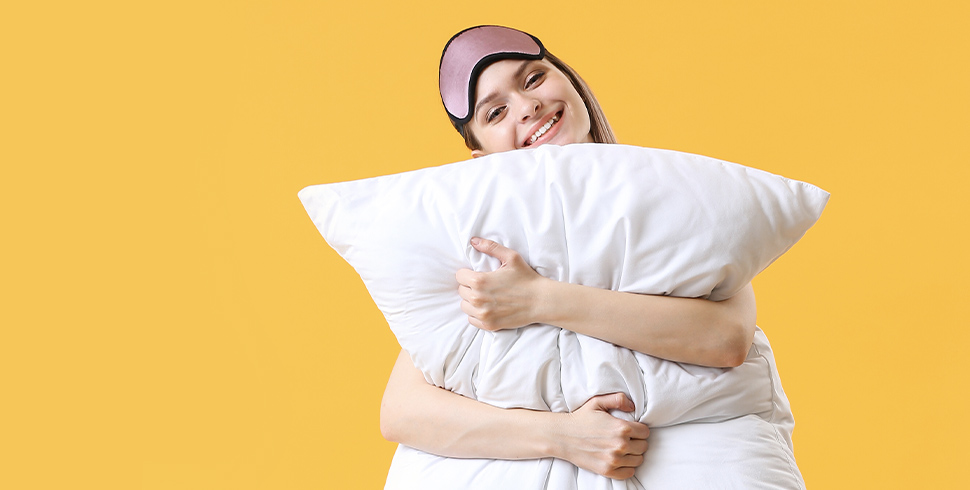Getting a goodnight’s sleep is vital for maintaining our health. Sleep is essential for our bodies and minds. On average adults need seven to nine hours of sleep each night to maintain their physical and mental health. Missing even as little as one to two hours of sleep can make us feel sluggish and less alert the next day.

A 2018 survey by Consumer Reports found that 80% of Americans reported having sleep problems at least once a week. This is a real problem because sleep deprivation can cause serious long-term effects on our bodies. Consistently not getting enough sleep or getting poor quality sleep can weaken our immune systems, cause mood swings, interfere with hormone production, and can even lead to high blood pressure and heart disease.
The sluggish and groggy feelings that accompany lack of quality sleep often lead to the use of stimulants like caffeine. While caffeine can help stave off some of the most immediate effects of a bad night’s sleep, it is not a replacement for consistent good-quality sleep.
The use of caffeine and other stimulants to compensate for feeling drowsy can just make it harder to get to sleep later. Which can lead to a terrible cycle of insomnia followed by excessive caffeine consumption. This hard-to-break cycle is sometimes made worse by the introduction of over-the-counter or prescription sleep aids.
The Problem With Over the Counter and Prescription Sleeping Pills
In the same 2018 Consumer Reports survey, 31% of people who reported having sleep problems at least once a week also reported using prescription or over-the-counter sleeping pills. Many over-the-counter sleeping aids rely on the drowsiness caused by older classes of antihistamines. While prescription sleeping pills generally work to sedate parts of the brain or nervous system.
The problem with these forms of sleep aids is twofold. The first being that they tend to leave you feeling drowsy, confused, and unsteady the next day. This leads right back into the caffeine insomnia cycle but this time with a dangerous addition, because many sleeping pills can cause dependency issues.
Sleeping pills should almost never be used for long periods of time. The longer they’re used the less effective they may become and the greater the risk of adverse side effects and addiction.
Why CBD is Safer and More Effective For Getting Deep Sleep?
Cannabidiol better known as CBD is a cannabinoid found in hemp. Cannabinoids like CBD and THC interact with our endocannabinoid system and can lower stress levels, relieve anxiety, and decrease inflammation in the body.
While researchers are still working to understand how exactly CBD helps us sleep, some think it has to do with CBD’s effects on stress and anxiety. Basically, it may be that CBD and other cannabinoids help relieve some of the root causes of modern insomnia. CBD can also be effective in relieving pain and inflammation, which in people with chronic health issues can often be the cause of insomnia.
Most importantly, CBD is non-addictive, and can’t lead to an overdose. CBD won’t leave you feeling groggy or drowsy the next day. That’s why trying CBD gummies for sleep is a safer more effective way to help get the rest your body needs.
What Should I Look for in a CBD Gummy for Sleep?
Look for a full or broad-spectrum CBD gummy. Full and broad-spectrum CBD both contain all the cannabinoids and terpenes that naturally occur in cannabis. Cannabinoids work best when in combination with one another.
Some brands may offer gummies that are specifically formulated to promote sleep. These gummies may pair CBD with other herbs and supplements that have been known to have calming effects.
Lastly, when choosing a gummy make sure the brand offers independent third-party testing. Third-party testing is an industry-standard and an important way to make sure you know what you’re putting into your body.
Leave a Reply